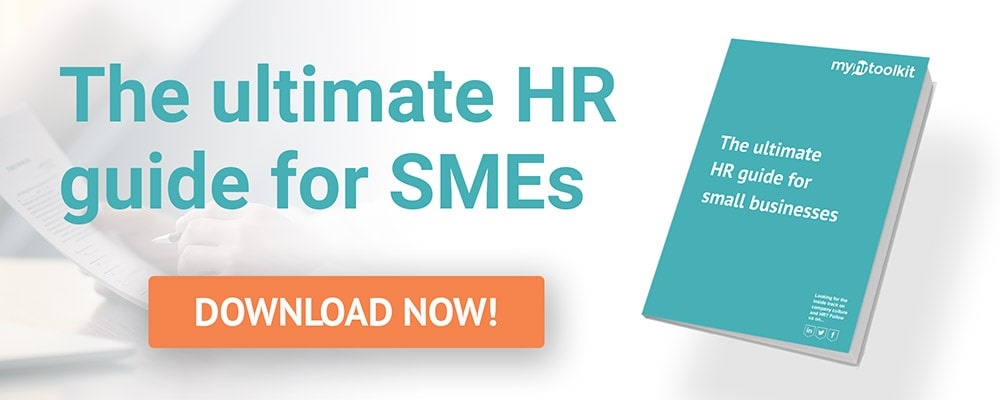Can it be illegal to give an employee a bad reference? JMW Solicitors' Employment Team Partner, Marcus Dilefice outlines what is and isn't legally acceptable for employee references in line with case law and contractual policy.
The position in relation to professional references is often misunderstood. Many individuals and businesses consider that ‘bad’ references cannot be given in the UK; however, this is untrue. Employers are permitted to provide unfavourable references where they believe that the provided information is true, accurate, and there are reasonable grounds for that belief.
What does the law say in relation to references?

There is no legislation directly on employer references; however, companies may be breaching other legislative provisions if they make an unlawful act in the process of giving a reference to a prospective employer. For example, if the reference is discriminatory in relation to an ex-employee’s protected characteristic e.g. their age, sex, or race, then there may be a breach of the Equality Act 2010.
Instead of legislation, the position on references has developed through case law. The principle that a reference-maker has to be making the statement truthfully, accurately and with reasonable grounds for believing as such comes from the case Bartholomew v London Borough of Hackney 1999. The case Kidd v Axa Equity and Law Life Assurance Society plc 2000, which followed shortly after, confirmed that the reference doesn’t need to be detailed or comprehensive.
Do employers have to give a reference?
As the law currently stands, it is not illegal to refuse to give a reference. However, this does depend on the circumstances and certain regulatory bodies such as the Financial Conduct Authority do require references. Furthermore, in some sectors it is extremely detrimental to an individual and uncommon practice to refuse to give any reference.
Employers are also under an obligation to follow their own contractual policies, and therefore if they have clauses relating to supplying of references, they should comply with these. Otherwise, employers may risk receiving breach of contract claims.
In any event, the refusal to provide a reference needs to be reasonable and it may be contrary to the Equality Act 2010 if the refusal was directly in connection with the ex-employee giving evidence or information in relation to proceedings. These proceedings could be a grievance alone, or even the bringing of an Employment Tribunal claim.
Is it illegal to give a false reference?

An ex-employee could bring a negligence claim against an ex-employer is the information contained within the reference is false or inaccurate. To bring these claims, the individual would need to demonstrate that there has been some identifiable loss in connection with the damaging impact on their employment prospects.
Alternatively, an ex-employee can bring a claim of malicious falsehood. The basis of this claim would be that the reference was untrue and was made maliciously. This would be quite difficult to prove from the reference alone.
What should I do as an employer to mitigate these risks?
From an employment perspective, the best advice would be to give truthful and reflective references, if your normal customs permit for references to be provided. In practice, whilst there is no obligation to provide a reference, most roles are reliant upon them and therefore it is uncommon for companies to have blanket bans on responding to reference requests.
One approach could be to only supply factual references. These are becoming increasingly used by employers who do not wish to open themselves up to litigation risks by commenting on an employees’ character. Factual references include undisputed information inclusive of the ex-employee’s name, title, and dates of employment.
Acas have released useful guidance entitled When an employer has to give a reference as the topic is becoming commonly discussed.
What should employers include in a non-factual reference?
If an employer does choose to provide a full reference, the employer may comment on certain matters including:
- Job performance and overall capability
- Disciplinary and absence records
- The reasoning for leaving
- Timekeeping and any other relevant commentary
However, do ensure that this is as objective as possible to avoid any false or misleading comments. It may be good practice to have a substantive reference reviewed by another colleague before sending to a prospective employer.
Are there any tactical ways in which employers can give references?

Insofar that employers comply with their own internal policies, as well as the case law on the matter, references are so important to employees that they can be used by businesses as a bargaining chip. For example, in settlement negotiations, employers can agree the wording of a suitable reference as part of a compromise agreement. Those also undergoing disciplinary processes will be concerned that details surrounding their misconduct will be revealed to a prospective employer once they have been dismissed. This is legally permissible as the information will be factually accurate, but it could have serious consequences on the individual.
The above-mentioned option is often attractive to employees as they can be assured that the industry will not be informed of the circumstances revolving around their termination of employment. From an employer perspective, it is not a heavy burden to provide a pre-agreed reference upon request and therefore this is preferable too.
Read more from the myhrtoolkit blog

Written by Marcus Difelice
Marcus Difelice has been a Partner in the JMW Employment Team since 2020, having previously worked for Brabners LLP, Eversheds and Pinsents. He specialises in supporting employers who are defending against Employment Tribunal claims and managing employee change programmes, particularly within the hospitality sector.


 Holiday Planner
Holiday Planner Absence Management
Absence Management Performance Management
Performance Management Staff Management
Staff Management Document Management
Document Management Reporting
Reporting Health and Safety Management
Health and Safety Management Task Management
Task Management Security Centre
Security Centre Self Service
Self Service Mobile
Mobile




